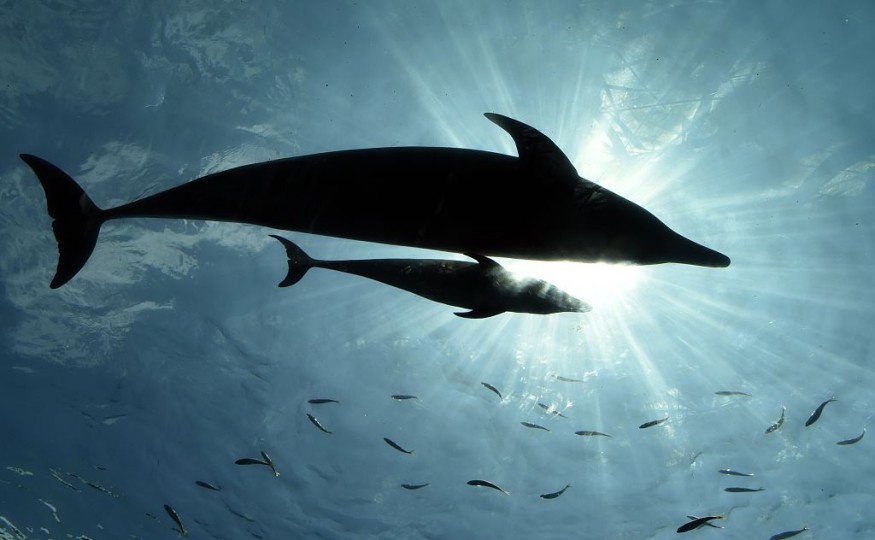
A new study has uncovered a concerning fact: bottlenose dolphins living in Sarasota Bay, Florida, and Barataria Bay, Louisiana, are exhaling tiny bits of plastic known as microplastics.
This research, published in the journal PLOS One, shows that these small plastic fragments are everywhere, even in our oceans.
Scientists estimate that there are around 170 trillion bits of microplastic in the oceans alone, and both people and animals encounter these tiny pieces primarily by consuming contaminated food and water or inhaling them from the air.
Microplastics are tiny plastic particles that measure less than 5 millimeters, which is about the size of a grain of rice.
The plastic fibers discovered in the dolphins' breath are almost 14 times smaller than a strand of hair. These minuscule plastic particles can be found on land, in the air, and even in the clouds.
Microplastics Pose Health Risks to Dolphins, Humans Alike
Scientists are worried because these tiny bits of plastic can have serious health effects on animals and humans alike. In the study, researchers found that the microplastics exhaled by the dolphins have a similar chemical composition to the plastics found in human lungs.
However, it is still unclear how much exposure dolphins have compared to people. Scientists know that when humans inhale microplastics, it can lead to problems such as lung inflammation, excess mucus and even serious illnesses like cancer.
Since dolphins are mammals, they might face similar health risks from inhaling these harmful particles. The health risks from microplastics are not limited to the lungs.
Chemicals in plastics have been found to affect human reproduction, heart health and brain function. Therefore, it is very likely that dolphins are also at risk from these chemicals.
© 2025 NatureWorldNews.com All rights reserved. Do not reproduce without permission.





